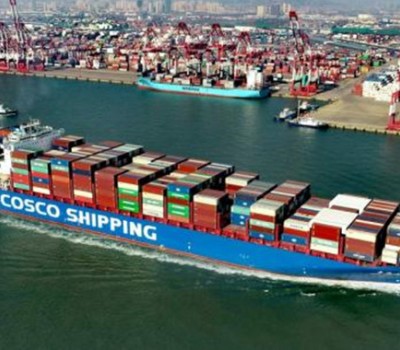China Promotes Integrated Development Of Domestic And Foreign Trade
The world’s second-largest consumer market and the world’s biggest goods trader, China is striving to accelerate the integrated development of both domestic and foreign trade.
Introducing a circular released recently by the General Office of the State Council that raised 18 measures to speed up the integrated development, officials of multiple departments said that it is necessary to open up the domestic market as well as the international market, encourage foreign trade enterprises to switch to domestic sales, and domestic trade enterprises to engage in foreign trade.
“Our understanding of the integration of domestic and foreign trade is to adhere to integrated development and help enterprises walk on two legs,” Vice Minister of Commerce Sheng Qiuping said at a press conference held in Beijing on Monday.
“An important goal of the integration of domestic and foreign trade is to improve the development capabilities of enterprises’ domestic and foreign trade integration by improving systems and mechanisms, building common platforms, and optimizing public services so that enterprises can adapt to changes both in the domestic and international markets smoothly,” Sheng said.
According to the circular, measures will be taken to accelerate the alignment of rules and systems for domestic and foreign trade involving standards, examination, accreditation, and oversights.
Efforts should also be made to promote the connection of market channels for domestic and foreign trade, the circular said, adding that the business environment for the integrated development of domestic and foreign trade will improve with measures including intensifying the protection of intellectual property rights, improving credit systems, and enhancing logistics facilitation. The circular also noted strengthening fiscal and financial support efforts.
Technical trade measures with standards and conformity assessments are significant factors affecting international trade, and differences in domestic and international standards can result in inevitable differences in certification procedures, scope of applications, and evaluation methods.
In light of this, an official with the State Administration for Market Regulation, China’s market watchdog, Yao Lei said at the press conference that the department will vigorously promote the consistency of domestic and international standards and strengthen the mutual international recognition of conformity assessment.
Sheng added that the measures not only support foreign trade companies to expand the domestic market so that high-quality foreign trade products can enter the domestic e-commerce platforms, shopping malls, and supermarkets, but they also support foreign trade companies to expand their market overseas by giving full play to the role of new foreign trade formats and models such as market procurement, cross-border e-commerce, and overseas warehouses.
- Category:
- Business
- 29 Jan, 2024
- 553 views
- No comments





